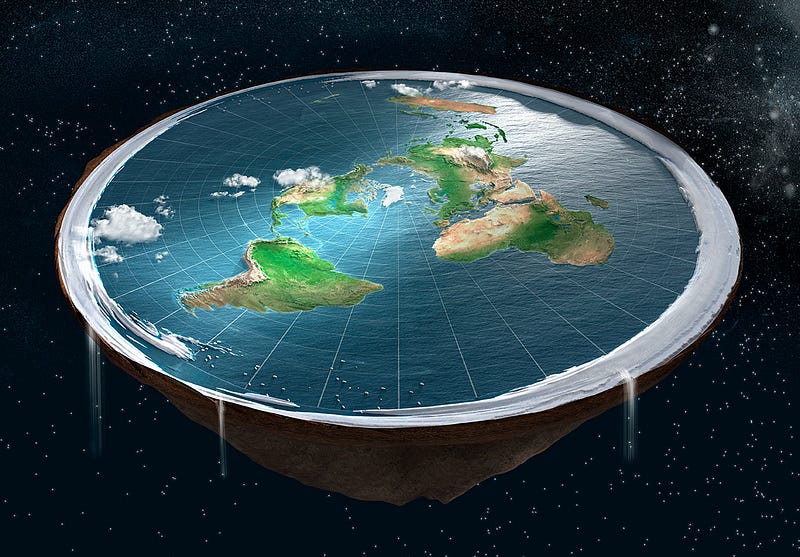Why Do Some People Believe the Earth Is Flat?
Written on
Chapter 1: Challenging Conventional Beliefs
The assertion that the Earth is flat often draws laughter and skepticism. It seems that most people firmly believe in a round Earth, or, at the very least, an oblate spheroid. However, this belief is largely based on what they have been taught in educational settings.

It's crucial to question what evidence supports these beliefs. Dismissing NASA images as fabrications or considering them mere products of modern technology can lead to a deeper inquiry. If we can accept fictional worlds like Tatooine from Star Wars, why not question the reality we are told about our own planet?
Section 1.1: The Basis of Belief
Many people cannot articulate the reasons behind their conviction that the Earth is round. They might cite the idea of oceans spilling over the edges, to which a flat Earth supporter might respond with the notion of an ice barrier keeping waters contained.
The history of human belief is replete with examples of widely accepted ideas that were later proven wrong. This raises a significant question: What makes contemporary beliefs immune to scrutiny?
Subsection 1.1.1: The Nature of Trust
People often place their trust in medical professionals, news outlets, and political parties, relying on these sources for information without fully understanding the complexities involved. Many may not possess the statistical knowledge necessary to analyze claims or data effectively.
Furthermore, cultural narratives, like those perpetuated by Disney regarding love, or more mystical beliefs about life forces or spiritual entities, illustrate how easily individuals can accept ideas without critical examination.
Section 1.2: The Argument Against Blind Faith
Ultimately, the inability to provide substantial evidence for core beliefs is a commonality shared by many. When faced with differing opinions, such as the flat Earth perspective, it's vital to assess the reasoning behind one's own beliefs before dismissing others.
Chapter 2: Historical Context and Scientific Principles
The first video, "Why do people still think the Earth is flat? - BBC News," delves into the psychology and sociocultural factors that lead some individuals to maintain their flat Earth beliefs despite overwhelming scientific evidence to the contrary.
In "Inside a Flat Earth convention, where nearly everyone believes Earth isn't round," viewers can witness firsthand the community and rationale behind the flat Earth movement, highlighting the need for understanding differing viewpoints.
The crux of the matter lies in the fact that majority beliefs do not guarantee truth. History shows that popular opinions can often be misguided, and it is wise to approach widespread beliefs with skepticism.
Thus, when addressing the belief in a flat Earth, one must critically evaluate the reasons behind all beliefs—both mainstream and fringe—before labeling any perspective as foolish.